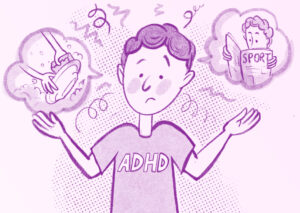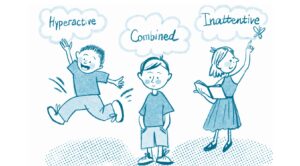Divorce is a significant life transition that affects not only the separating partners but also their children. As parents navigate the complexities of ending a marriage, it’s crucial to understand the psychological impact on children and adopt strategies that support their emotional well-being. This comprehensive guide delves into the psychological effects of divorce on children and offers evidence-based insights to help parents foster resilience and stability during this challenging time.
Table of Contents
ToggleUnderstanding the Psychological Impact of Divorce on Children
Research consistently shows that divorce can have profound effects on children’s mental health. Children may experience a range of emotions, including sadness, anger, confusion, and anxiety. These feelings can manifest in various ways, such as behavioral issues, academic struggles, and social withdrawal.
A study published in the Journal of Epidemiology and Community Health found that children whose parents divorce exhibit higher levels of anxiety, depression, and antisocial behavior compared to peers whose parents remain married.
However, it’s important to note that while divorce can be challenging, many children adapt well over time, especially when parents provide consistent support and maintain a stable environment.
Strategies for Supporting Children Through Divorce
1. Open and Honest Communication
Children need age-appropriate explanations about the divorce. Avoiding the topic can lead to confusion and misconceptions. Encourage your child to express their feelings and reassure them that both parents will continue to love and support them.
2. Maintain Routines and Stability
Consistency provides a sense of security. Keeping daily routines, such as meal times, bedtimes, and school schedules, helps children feel grounded amidst the changes.
3. Avoid Negative Talk About the Other Parent
Speaking negatively about your ex-spouse in front of your child can lead to feelings of guilt and divided loyalties. Focus on fostering a respectful co-parenting relationship for the benefit of your child.
4. Seek Professional Support
Therapists and counselors specializing in family transitions can provide valuable support for both parents and children. They offer coping strategies and a safe space to process emotions.
Co-Parenting: Building a Collaborative Relationship
Effective co-parenting involves both parents working together to raise their child, despite the end of their romantic relationship. Key components include:
- Clear Communication: Discuss parenting decisions openly and respectfully.
- Consistency: Align on rules, discipline, and expectations across both households.
- Flexibility: Be willing to adjust schedules and plans in the child’s best interest.
- Conflict Resolution: Address disagreements privately, away from the child.
In cases where cooperative co-parenting is not feasible, parallel parenting—where parents disengage from each other and maintain separate relationships with the child—may be a suitable alternative.
Psychological Insights: The Role of Mental Health Professionals
Mental health professionals play a crucial role in supporting families through divorce. They can:
- Assess Emotional Well-being: Identify signs of distress in children and provide appropriate interventions.
- Facilitate Communication: Help parents and children navigate difficult conversations.
- Develop Coping Strategies: Equip families with tools to manage stress and adapt to new dynamics.
Engaging with a psychologist or counselor can be particularly beneficial in high-conflict situations or when children exhibit significant behavioral changes.
Cultural Considerations: Divorce in the Indian Context
In India, divorce carries unique cultural and societal implications. Stigma and traditional family structures can influence how families experience and manage divorce. It’s essential to:
- Acknowledge Cultural Norms: Understand and respect cultural perspectives while prioritizing the child’s well-being.
- Educate Extended Family: Involve grandparents and other relatives in discussions to foster a supportive environment.
- Access Culturally Sensitive Support: Seek professionals who understand the cultural context and can provide tailored guidance.
Case Study: Navigating Divorce with Psychological Support
Consider the case of Riya and Arjun, parents of a 10-year-old boy, Karan. As their marriage dissolved, they noticed Karan becoming withdrawn and struggling academically. Recognizing these signs, they consulted a child psychologist who worked with Karan to express his feelings and helped Riya and Arjun develop a co-parenting plan. Over time, Karan regained his confidence, and the family established a new, supportive dynamic.
Conclusion: Prioritizing Children’s Mental Health During Divorce
Divorce is undeniably challenging, but with intentional efforts and psychological insights, parents can mitigate its impact on their children. By fostering open communication, maintaining stability, and seeking professional support, families can navigate this transition and emerge resilient.
Remember, the goal is not to shield children from all difficulties but to equip them with the tools and support to handle life’s changes with confidence and emotional strength.
Note: For personalized guidance, consider consulting a psychologist specializing in family transitions to address your unique circumstances and needs.







